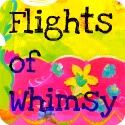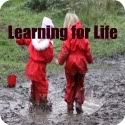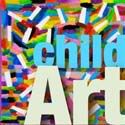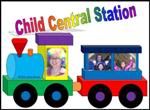Recently, our children have been incorporating ‘shop play’ into their dramatic play experiences. We have had a ‘fish ‘n’ chip’ shop in the cubby house, a ‘cake stall’ in the sandpit and an ‘ice-cream shop’ under our climbing forte. So as a means of supporting and promoting further learning in relation to this interest, we decided to set up a ‘supermarket corner’ in the space that is normally our ‘home corner’.
Once the shop area was established, we were amazed by how the children began to play in a manner that reflected an incredible attention to detail. They had clearly closely observed the behaviour of supermarket shoppers and ‘check-out’ workers critically and thoughtfully. They were able to take on the characteristic actions and ‘model’ the typical ‘small-talk’ that might occur between customers and sales staff.
I was instantly reminded of this quote:
“Education is not Preparation for life; Education is Life Itself”.
(John Dewey)
Children are ALWAYS learning. They are tuned in to our every move and every action, eventually modelling and imitating all that they observe in their day to day encounters. It is a necessary part of their ‘making sense’ of the world in which they live and coming to terms with the social and cultural ‘norms’ of their society.
In her book, “The Cultural Nature of Human Development” (2003), Barbara Rogof highlighted that ‘culture matters’ in children’s learning and development.
“The theoretical perspective that I put forward focuses on both the cultural and the individual processes involved in human development. I argue that individuals develop as participants in their cultural communities, engaging with others in shared endeavours and building on cultural practices of prior generations.”
“One aim of the book is to bring to awareness the cultural aspects of everyday practices that seem ‘natural’ to those whose upbringing is limited to the dominant European-American middle-class culture. Rather than being ‘normal’, they are closely tied to cultural traditions of this community.”
You can read more here if you wish.
In her book (page 6) Rogof provides a photograph (courtesy of David Wilkie) of an 11-month-old Efe child (In the Ituri Forest of the Democratic Republic of Congo) with a large fruit as he “…skillfully uses a machete, with his grandmother monitoring in the background.” How different is this child’s cultural experience with regard to attaining food to that of our children’s experiences?
Dramatic play provides children with opportunities to practice the social behaviours and cultural traditions of their society. But in addition, it provides children with opportunities to develop literacy and numeracy skills as they re-enact typical ‘real life’ contexts.
Considered the following outcomes of the Victorian Early Years Learning Framework (Australia) in relation to the children’s ‘supermarket play’:
- Demonstrate an understanding of mathematical concepts in play.
- Take on roles of literacy and numeracy users in their play.
- Take on the characteristics and actions related to a role.
- Share the stories and symbols of their own culture and re-enact well-known stories.
























